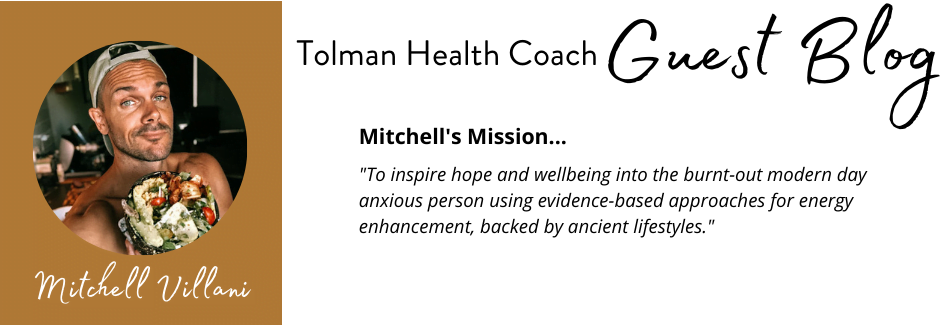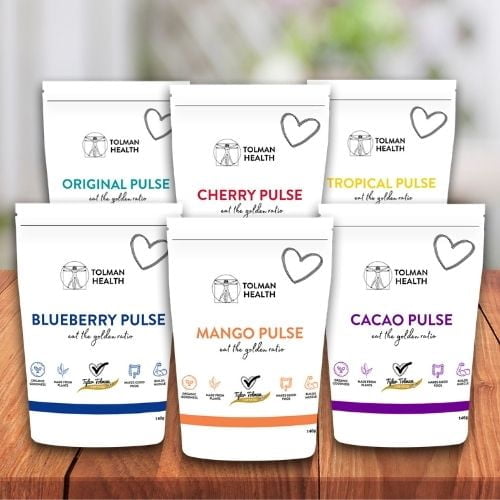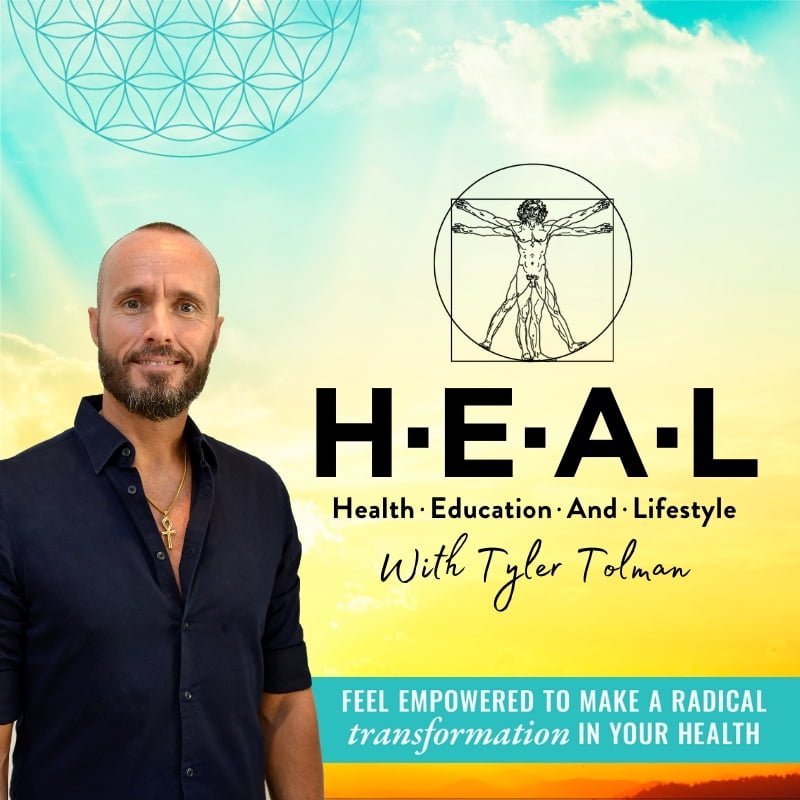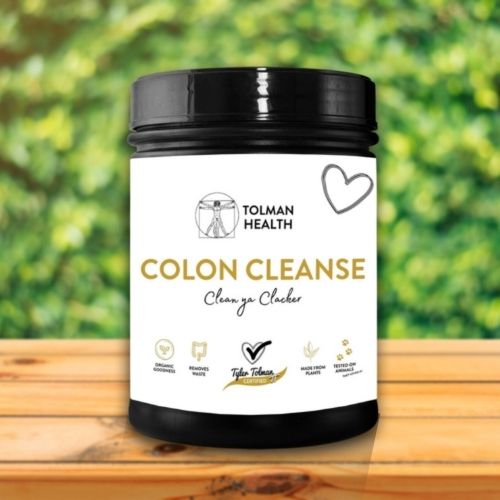TYLER TOLMAN BLOG
Food Additives to Cross Off Your Menu by Coach Mitchell Villani
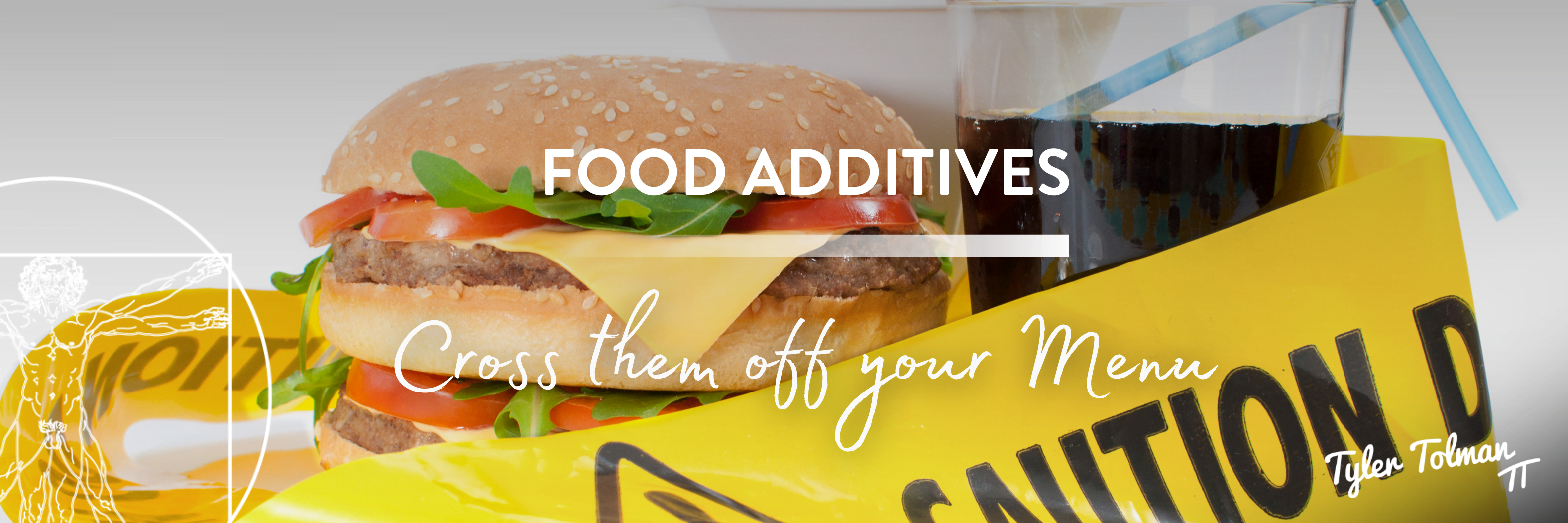
Food Additives to Cross Off Your Menu by Coach Mitchell Villani
We’ve all heard the term ‘Let food be thy medicine and medicine be thy food‘. This was quoted by the one and only Hippocrates. You know, the guy who started the modern medicine movement.
You may also have heard of the ‘Hippocratic Oath’ which is ‘First Do No Harm’.
If only businesses and governments were required to state such an oath and stand by it. Maybe then our food industries would have a greater moral compass, but then again, I highly doubt it.
People today are more confused about diet and nutrition than ever before.
Why is that? Because we have been lied to through poor, biased, financially funded scientific studies, marketing and lobbyists. It really comes down to these three main areas: our rigged food environment, our hijacked healthcare system, and our for-profit nutrition culture.
Tyler Tolman said it best, “You are what you eat. So don’t be fast, easy or fake.“
I love this quote because it truly captures where we, as a human species, have gone wrong with food. But it’s not our fault. We have been manipulated to crave instant gratification.
We cannot and should not underestimate the determination of the industries with vested interests to get their fake, ultra-highly processed foods in front of your eyes and into your mouth as easily and as quickly as possible.
This is the purpose of this blog. To give you some insight into the hidden nasties that you find listed in the ingredients and why they should be avoided at all costs.
Top 12 No No's
Here are my top 12 food additives to take off your menu:
1. Aspartame (e951)
Used in: So-called “diet” or “sugar-free” products (such as diet coke, coke zero), jello, sugar-free gum, drink mixes, table top sweeteners, cereal, puddings, kool-aid, iced tea, chewable vitamins, toothpaste, cough syrup.
Reasons to Avoid: Aspartame is not your friend – it’s a neurotoxin and carcinogen. Known to erode intelligence and affect short-term memory. The components of this toxic sweetener may lead to a wide variety of ailments including brain tumors, lymphoma, diabetes, multiple sclerosis, Parkinson’s, Alzheimer’s, fibromyalgia, chronic fatigue, depression and anxiety attacks, dizziness, headaches, nausea, mental confusion and seizures.
2. High Fructose Corn Syrup (HFCS)
Used in: Most processed foods, breads, candy, flavoured yoghurt, salad dressings, canned vegetables, cereals.
Reasons to Avoid: HFCS is a highly refined artificial sweetener which has become the number one source of calories in America. It packs on the pounds faster than any other ingredient, increases LDL (‘bad’) cholesterol levels, and contributes to the development of obesity and diabetes.
3. Hydrogenated Vegetable Oil (Trans Fats)
Used in: Margarine, chips and crackers, baked goods, fast foods.
Reasons to Avoid: Trans fat increases LDL cholesterol levels while decreasing HDL (‘good’) cholesterol, increases the risk of heart attacks, heart disease and strokes and contributes to increased inflammation, diabetes and other health problems.
4. Monosodium Glutamate (MSG / e621)
Used in: Chinese food, potato chips, cookies, seasonings, most Campbell Soup products, frozen dinners, lunch meats.
Reasons to Avoid: MSG is used as a flavour enhancer that affects the neurological pathways of the brain and disengages the “I’m full” function which results, for many, in weight gain. MSG is an excito-toxin, and regular consumption may result in depression, disorientation, eye damage, fatigue, headaches and obesity.
5. Food Dyes (e123 / e124 / e110 / e102)
Used in: Fruit cocktail, maraschino cherries, cherry pie mix, ice cream, candy, bakery products, American cheese, macaroni and cheese.
Reasons to Avoid: Artificial colourings may contribute to behavioural problems like ADD and ADHD in children and lead to a significant reduction in IQ. Animal studies have linked other food colourings to cancer.
6. Sodium Sulphite (221)
Used in: Wine and dried fruit.
Reasons to Avoid: According to FDA, approximately one in 100 people are sensitive to sulphites in food. Individuals who are sulphite-sensitive may experience asthma, headaches, breathing problems and rashes.
7. Sodium Nitrate (e250)
Used in: Hotdogs, bacon, ham, luncheon meat, cured meats, corned beef, smoked fish or any other type of processed meat.
Reasons to Avoid: Sodium Nitrate is the chemical that turns meats bright red – it’s highly carcinogenic once it enters the human digestive system. There, it forms a variety of nitrosamine compounds that enter the bloodstream and wreak havoc with a number of internal organs; the liver and pancreas in particular. This toxic chemical is linked to many cancers.
8. BHA and BHT (e320, e321)
Used in: [A preservative in] potato chips, gum, cereal, frozen sausages, enriched rice, lard, shortening, candy, jello.
Reasons to Avoid: This common preservative keeps foods from changing colour, changing flavour or becoming rancid. It affects the neurological system of the brain, alters behaviour and has potential to cause cancer. BHA and BHT are oxidants which form cancer-causing reactive compounds in the body.
9. Potassium Bromate (e924)
Used in: Increases the volume in bread and bread rolls.
Reasons to Avoid: Potassium bromate is known to cause cancer in animals. Even small amounts in bread can create problems for humans.
10. Propyl Paraben (e216)
Used in: Used as a preservative in foods such as muffins, tortillas and dyes.
Reasons to Avoid: An endocrine-disrupting chemical that has been shown to decrease sperm count in rats. May also alter gene expression within breast cancer cells, leading to accelerated cancer growth.
11. Aluminium Additives (173, 559)
Used in: Main exposure is through processed products containing aluminium.
Reasons to Avoid: May have neurological effects upon behavioural, motor and learning functions. Has been associated with Alzheimer’s disease and other neurodegenerative conditions.
12. Sulphure Dioxide (e220)
Used in: Used as a preservative in beers, soft drinks, dried fruit, juices, cordials, wine, vinegar, and potato products.
Reasons to Avoid: Sulphur additives are toxic. Adverse reactions include bronchial problems, asthma, hypotension, flushing tingling sensations or anaphylactic shock. It destroys vitamins B1 and E in the body. Not recommended for consumption by children.
That was a lot, but it’s worth knowing.
My food philosophy is this…
I eat for health! This means I eat to fuel and nourish my body with purpose every time I eat, not to be full. I don’t just eat something because it seems ok.
This means clean fuel, the best I can get my hands on based on my current location and context. I wouldn’t put diesel in my petrol car. I’m sure you wouldn’t either.
Eat for energy and health. Not to be satiated.
Thanks for reading!


